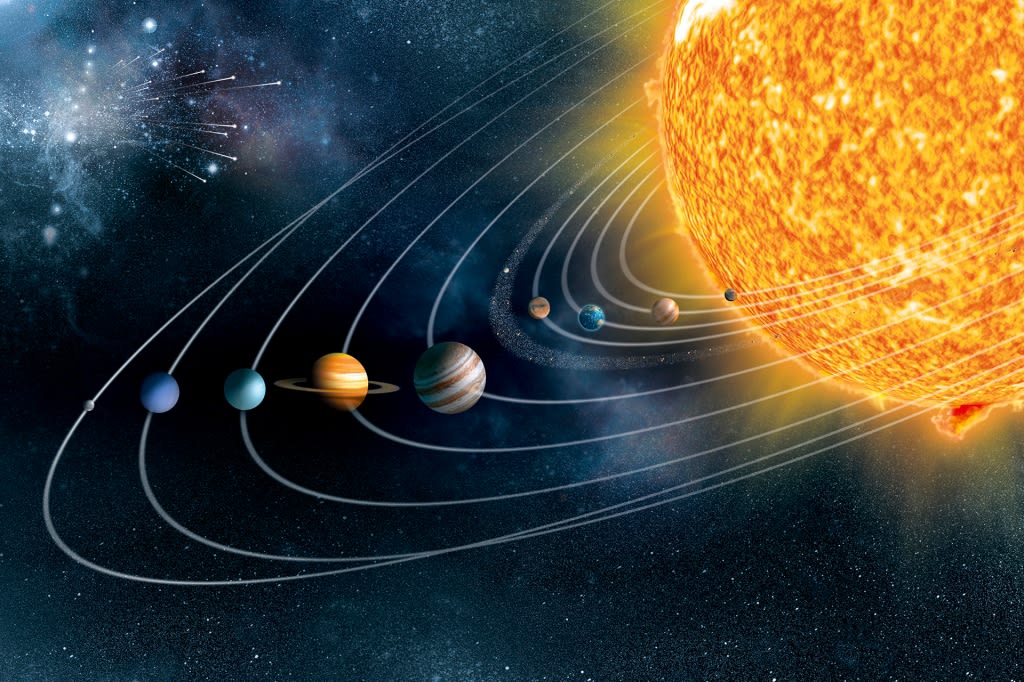Should we try to cool the planet by reflecting sunlight?

The Philippines' Mount Pinatubo erupted in 1991, making it the second-largest volcanic eruption of the 20th century. A layer of aerosol particles was dispersed across the entire globe as its ash plume shot up past the atmosphere and into the stratosphere. Those particles formed a solar umbrella that reflected sunlight away from Earth, resulting in a half-degree Celsius decrease in global temperatures for nearly two years. It is not the first time that a huge eruption of a volcano has lowered global temperatures. El Chichón well of lava brought down temperatures by a comparable sum in 1982 as did other significant emissions throughout the last 100 years. Scientists are looking into whether we could use this phenomenon to combat global warming right now. Utilizing an innovation called sun based geoengineering. Allies say it's an instrument we want to truly investigate as environmental change deteriorates. gaining a deeper understanding of these issues, which has the potential to lessen suffering. That is worth very much. However, critics argue that the technology shouldn't be used to combat global warming because of the technology's risks. More technology isn't always better every time. Some innovations have been made that a lot of people wish had never been made. So which one is it? To comprehend the advantages and dangers of sun based geoengineering, I addressed a few researchers, legal counselors, native pioneers, areas of strength for both sides. Should we investigate solar geoengineering when the survival of the human race on Earth is at stake? All scientists agree on one thing: The planet could cool down through solar geoengineering. Reflecting daylight away from the earth prevents heat from getting caught in our climate. By injecting aerosols into the stratosphere like volcanoes do, we could accomplish that. That strategy has received the most research. Additionally, marine clouds' ability to better reflect the sun are the subject of research by some scientists. Space-based reflective shields are another possible approach. These initiatives are still in various stages of research, but in order to implement these technologies and achieve widespread cooling effects, we would need to massively alter our complex climate. The fact that we are currently on a pretty dire path is one of the main reasons that some scientists support solar geoengineering. Our emissions, primarily carbon dioxide, continue to increase. There's actually no inquiry we should cut emanations over the long haul. However, even if emissions are reduced to zero by tomorrow, climate risk remains. Simply put, it means that you stop the climate risk from getting worse because emissions accumulate. David Keith, a professor at the University of Chicago, is that. He clarified for me that except if we think past discharge decrease, the environmental change influences we're now encountering will keep on declining. According to a recent study, heat-related deaths are on the rise and account for nearly 10% of all global deaths. Supporters say that we need to use computer modeling to look into climate processes and develop technology to see if and maybe how this technology could be safely used worldwide with other solutions to reduce those effects. The thing is, meddling with our worldwide environment is exceptionally convoluted. The entire climate system is interconnected. The climate system's response could be significantly altered, unpredictably, by humans using technology. One of the major concerns regarding solar geoengineering is made reference to by Oxford Professor Raymond Pierre Humbert. Precipitation patterns around the world will change as a result of the addition of new elements to our atmosphere or stratosphere, potentially intensifying the extreme weather we are already experiencing. Almost everybody settles on these dangers. Additionally, you are unable to answer the most significant inquiries regarding the response of the climate system. Shy of a full scale sending. In terms of time and scale, a full-scale deployment would necessitate unprecedented global cooperation. However, the carbon dioxide we have transmitted since the modern insurgency and we emanate today will keep on warmingly affecting the environment for millennia from now regardless of whether we quit discharging. In any case, conversely, the sun oriented geoengineering procedures proposed have an exceptionally short lifetime in the environment. To make a kept cooling impact we would have to send them continually for quite a long time. This indicates that you are committed to establishing institutions and treaties that can be complied with for tens of thousands of years. And to impose that kind of burden on humanity in the future is truly unprecedented. On the off chance that there is a global conflict, war, worldwide despondency, or something that powers an unexpected end of sunlight based geoengineering, then, at that point, the world gets hit with this fast warming. Termination shock is the rapid warming. And one of the main reasons critics believe Solar geoengineering is ungovernable and unsustainable is the risk of it happening. In addition, our track record for figuring out how to move things along so far is pretty poor. In 2021, Sweden dismissed a spearheading undertaking to test sunlight based geoengineering innovation. Ecological and native gatherings gave a letter featuring "the potential for making definitely lopsided, capricious changes on environment, climate and biodiversity." furthermore "international strains it could stir". It would have a significant impact on our environment, ecosystem, and the precious ecosystems we are fighting for. To secure and protect and get and reinforce. Resistance like this is one explanation that most sun powered geoengineering research is occurring in labs with models and recreations. transforming the discussion about solar geoengineering into one about how far our research should go. 400 scientists wrote a letter in January 2022 calling for a non-use agreement on solar geoengineering.
It included five fundamental commitments, including the prohibition of outdoor experiments, public funding, and international support. One of the scientists who signed the document was Professor Pierre Humbert. He clarified that the signatories are content with research with low risks. Therefore, research on fundamental climate processes that does not develop the technology necessary for deployment can offer useful information. Modeling and computer simulations fall somewhere in the middle. Solar geoengineering critics worry that the closer we get to full-scale deployment, the more modeling we do. However, they recognize that a few reproductions are helpful and a vital piece of general science we can't take out. We are pretty clear that the signatories are opposed to research that is essentially technology development that will lead to deployment. Similar information was provided to me by Center for International Environmental Law employee Lili Fuhr. If we let the genie out of the bottle and research a technology beyond its theoretical potential and fully develop it, it will almost certainly be used. That has also been demonstrated with other technologies. About a year after the fact, in February of 2023, 110 researchers including Keith, gave a letter on the side of more examination into sunlight based geoengineering. They stated, "while we fully support the research, this does not mean we support the use of solar geoengineering technology," but they want a thorough international scientific assessment that includes experiments that could potentially advance technology. We cannot bind the future and prevent them from utilizing these technologies. Therefore, even if we collectively decide not to conduct significant research at this time, people will still use this technology in the future. It simply implies they will convey them with less information. I asked Sarah Doherty, who concentrates on marine cloud lighting up
at the College of Washington about research like this. Because the cat is out of the bag, it is crucial to conduct research now in order to make equitable decisions in the future. Individuals realize these choices exist. Some people believe that we ought to perform them right now. That indicates how likely it is that people will say, "Let's go do this," in 20 years. The possibility that solar geoengineering could serve as an excuse for oil and gas companies to continue selling fossil fuels is a major concern that both sides agree on. To release the innovation of sun oriented geoengineering on the world, when we've scarcely begun to get individuals keen on accomplishing the difficult work of decarbonization that will just unavoidably build the strain to simply accept the same old thing. I totally concur that a gamble around these advances is that they will be taken advantage of by individuals who need to save discharges. However, settling on the issue doesn't mean settling on the way ahead. That is a political concern. It is not ethical, in my opinion, to restrict research on technologies that have the potential to reduce risk. Solar geoengineering experiments have only been banned in Mexico so far. while the United States is working on a research strategy for solar geoengineering. World associations zeroed in on the environment are presently beginning to make evaluations and suggestions. I can't see which one is precisely on. Everything that I can say to you is that every single individual I addressed on one or the other side of the issue thinks often profoundly about our future on this planet. And it's possible that the tension between them is actually beneficial because, despite the fact that it does not provide us with a clear path forward, it can encourage us to be more careful and thoughtful about how we can resolve this enormous mess that we are in at the moment.
About the Creator
Gift Samuel
Hello, my name is Gift Samuel and am new here. Am a blogger, writer and I do lots of research. I love reading and I provide support services to schools on the best school software application for the management of their school's data.






Comments
There are no comments for this story
Be the first to respond and start the conversation.